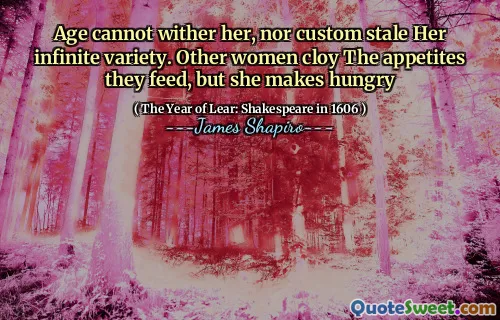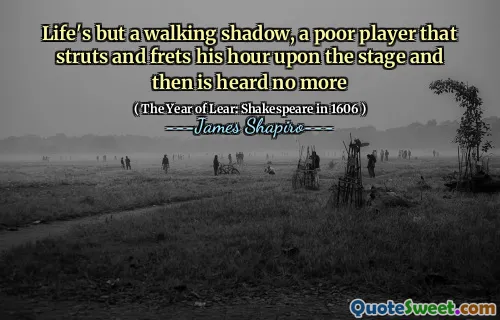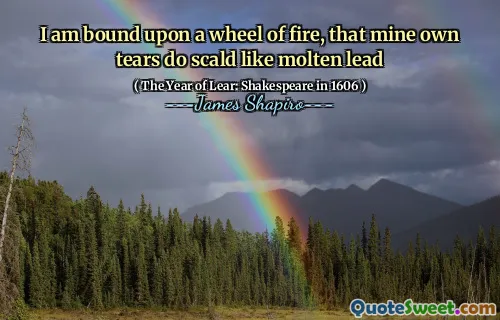
Soothsayer's warning to Antony in Antony and Cleopatra, "If thou dost play with him at any game, / Thou art sure to lose" {2.3.26–27}
In "The Year of Lear: Shakespeare in 1606," James Shapiro explores the political and personal dynamics within Shakespeare’s works, particularly focusing on characters like Antony who face dire consequences from their choices. The soothsayer's ominous warning to Antony captures the essence of fate versus free will, suggesting that engaging with certain powerful individuals can lead to inevitable downfall, underscoring the theme of vulnerability in the face of ambition. Antony's tragic trajectory is influenced by this premonition, reflecting the broader context of the time when political power struggles were fraught with peril. Shapiro's examination reveals how Shakespeare intertwines the supernatural with the characters' destinies, highlighting the tension between their desires and the looming threats that surround them. This builds a narrative that resonates with the treacherous nature of loyalty and the consequences of one's actions in the pursuit of power.











